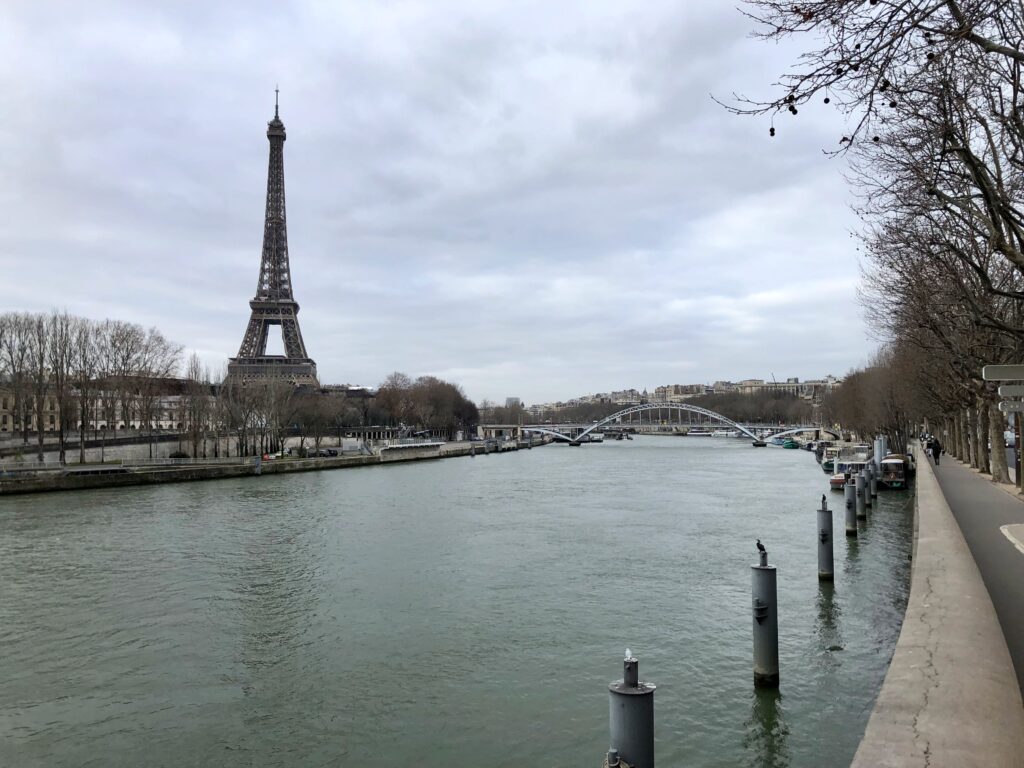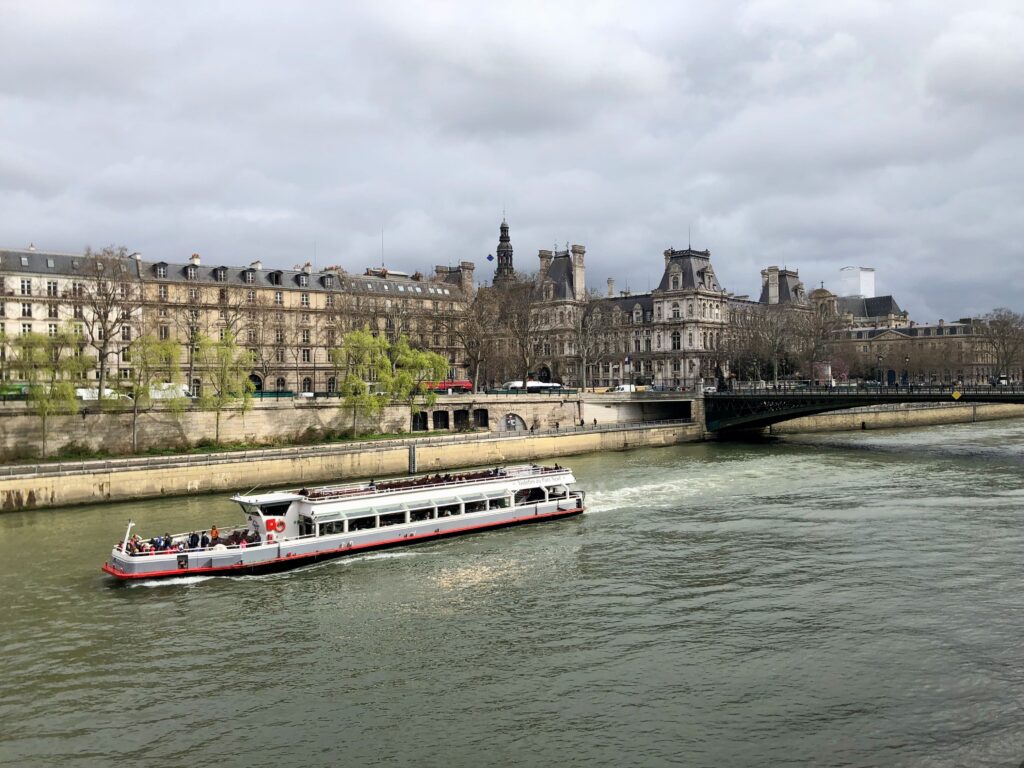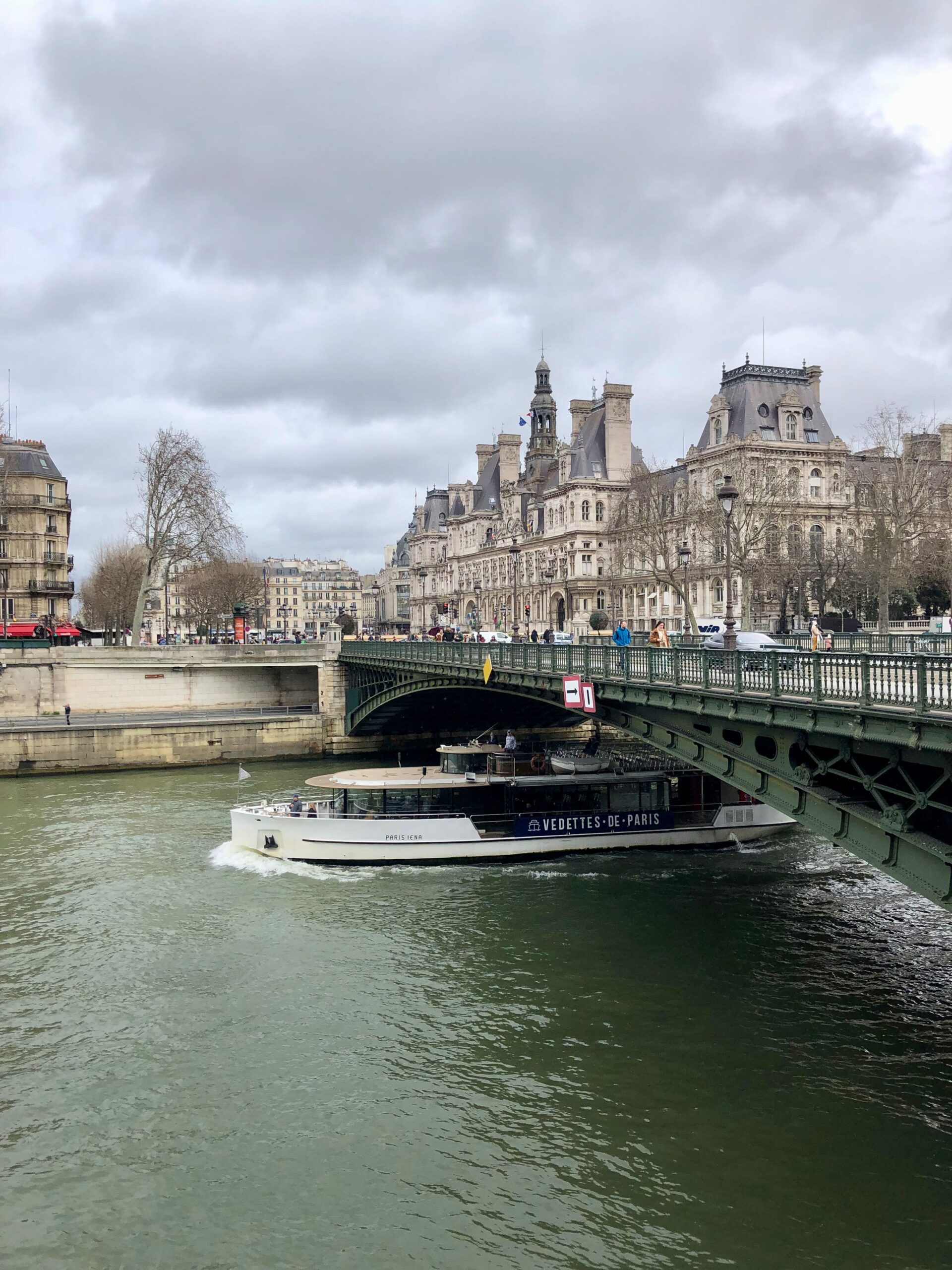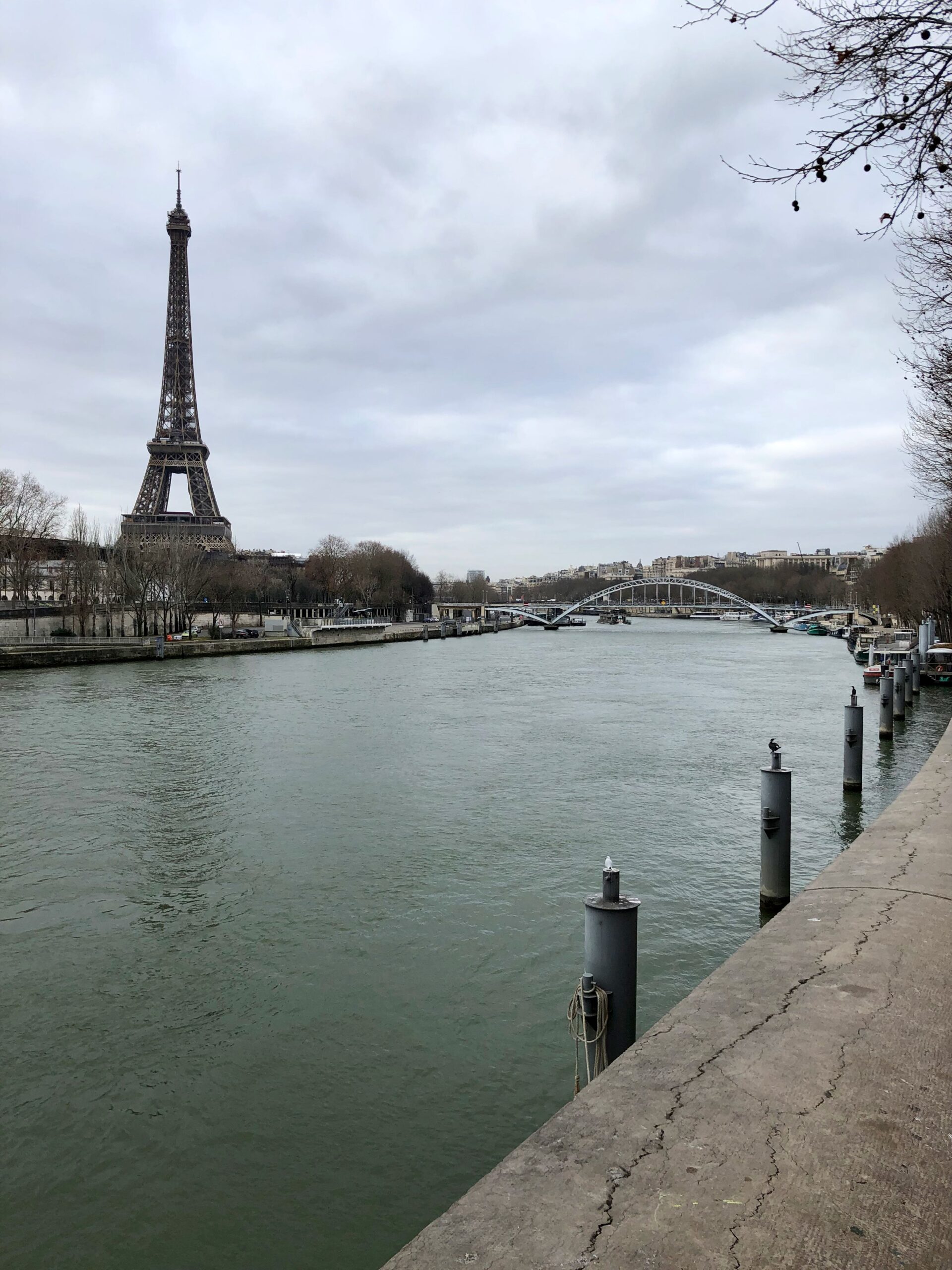This post may contain affiliate links, meaning that if you click and make a purchase, I may earn a commission at no additional cost to you. Read the full disclosure here.
Last Updated: October 26, 2024
You’re excited about your upcoming travel plans to Paris… You’ve bought your plane tickets, your Parisian accommodations have been booked, and you’ve ensured that your passport doesn’t expire for at least 3 months beyond your departure date. So, you’re ready to go, right?
Not so fast. Here are a few more practical things you need to check off in preparation for your trip to Paris. Lesser known and often forgotten about, these tips will ensure you have a smooth visit.

1. Check Your Passport’s Expiration Date
Ok, so for real, though, your passport does need to be valid for international travel. According to the U.S. Embassy in France, a U.S. passport must be valid for at least three months following the planned date of departure. Six months is a good buffer though.
Note that a 12-month emergency passport is not recognized by the French government, and you could be refused boarding or entry into France.
📌 U.S. Americans do not need a visa to visit France for short stays. However, you should keep tabs on ETIAS, a new travel authorization for Americans entering Europe. It’s due to be operational in the last quarter of 2026.
2. Set Up Your Phone for International Travel
When traveling abroad, you have a few choices when it comes to staying connected. You can rely on Wi-Fi hotspots (risky & unpredictable), you can activate the international phone plan with your current provider (spotty & expensive), or you can get a local SIM card (best deal & most reliable). Failure to plan ahead and choose one of these options will have you facing a big roaming bill at the end of your trip.
In my opinion, the best solution to staying connected while traveling internationally is by getting a prepaid local SIM card. This allows you to connect to a local network and ensures the best connectivity. Digital SIM cards, called eSIMs, are easy to download and use. Just make sure that your phone is “unlocked!”
📱 For a data-only eSIM option, I recommend Airalo. You can quickly choose your package based on your destination and validity period. Data packages are available for specific countries (like France) and also bigger regions (like Europe) in case you’re country hopping. While you won’t be able to make traditional phone calls or send text messages, you can bypass this by using WhatsApp which should be sufficient for the majority of your needs.
☎️ For a more traditional SIM card with calls and texts in addition to data, I recommend the Orange Holiday SIM card, having used it a few times myself. As part of the biggest network in France, the coverage is very reliable. You’ll receive a French phone number, and you can even use the SIM throughout Europe. This is particularly useful if you’re jumping around to a few countries.
3. Check Your Credit Card for International Fees
Credit card fees can add up quickly. To avoid unpleasant surprises, read through your credit card’s terms and conditions. If you can, select a credit card without foreign transaction fees. A card without foreign transaction fees will ensure that you can pay in other currencies without incurring extra charges. Always pay in the local currency for the best exchange rate!
Visa and Mastercard are best for travel. They have great acceptance internationally. Amex and Discover are not widely accepted in France.
💳 If you don’t already have a suitable travel credit card, check out Wise, a money transfer service. You can request a debit card (physical or digital) for ATM withdrawals and make purchases like you would with a regular card. Their fees and conversion rates are fair and transparent. Learn more about traveling abroad with a Wise debit card HERE.
These days, in Paris, you can pay for nearly everything by card. You won’t need much cash, but it’s a good idea to have some on hand for going to the market, buying your coffee, or making purchases in stores that have a card minimum. The best exchange rate is at a local ATM, so having a bank/debit card without international fees is sensible as well.

4. Familiarize Yourself With Paris Transportation
Metro, trams, buses, and bikes… Paris has great public transportation, but it can be a bit overwhelming if you’re not used to navigating a large city. Not to mention, that metro map is going to make a whole lot less sense to the weary visitor who didn’t sleep a wink on the flight over. Before you land in Paris, at the very least, figure out how to get from the airport to your accommodations. Your future jetlagged self will thank you!
Related: Paris Metro Etiquette Guide
Personally, I think that taking a taxi from the airport to the city center is the best way to go and totally worth the cost. For some, this may be considered an unpopular opinion, but I stand by it! Generally the quicker option, taxis are convenient, allowing you to bypass schlepping your luggage through turnstiles and up and down stairs. It should be additionally noted that Parisian taxes have fixed rates to and from the airports, so the price can be especially interesting to those traveling with a partner or group. (Beware of taxi scams!)
5. Book Your Must-Dos in Advance
Paris is a major tourist destination and one of the most visited cities in Europe. As such, the capital can get very busy during the peak travel season. Take some time to consider your must-dos for the trip and come up with an itinerary. If it’s your first time in Paris, it might make sense for you to take advantage of an all-inclusive pass that will allow you to enjoy savings with access to over 35 attractions, tours, and experiences.
Need help figuring out what you should make time for in your schedule?
Avoid disappointment and/or an illogical itinerary by booking museums and activities in advance. In many cases, you can reserve the exact time slot that you want.
P.S. A boat tour on the Seine is something I love to recommend to anyone coming to Paris. It’s a great way to get a good lay of the land along with a unique view of many of the top monuments.

6. Stay Informed About Upcoming Strikes & Protests
In Paris, encountering a strike or protest is inevitable. The effects of strikes and protests can be particularly felt in the capital, so it’s important to stay up to date on the latest social movements in Paris.
Most museums and tourist attractions remain open as usual, but you may need to adjust your plans to avoid demonstration routes and deal with the inconvenience of metro closures. Citymapper and Bonjour RATP are a few phone apps that will make your trip to Paris easier to navigate.





What about parking????
I await your notes on the matter 😅